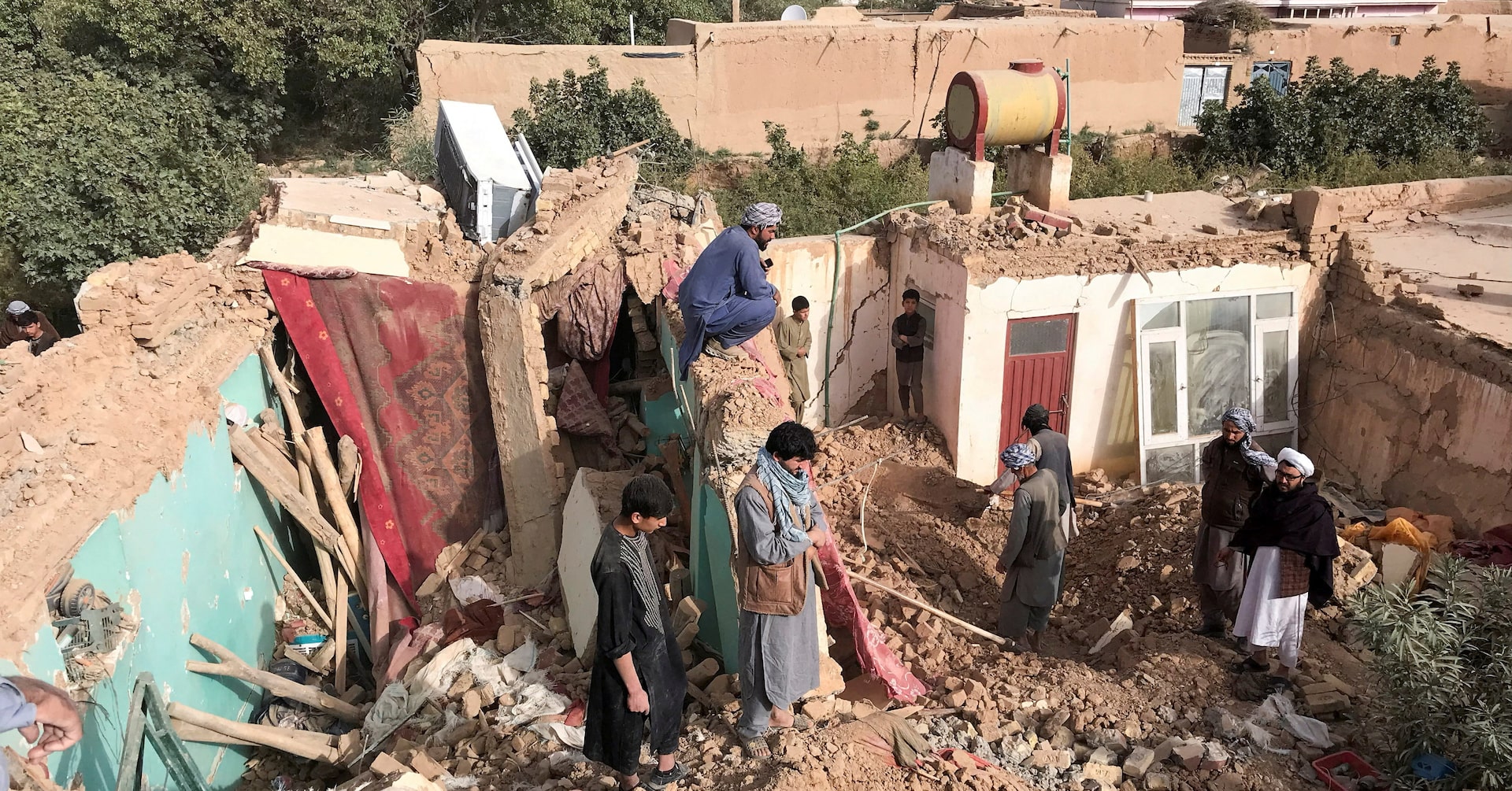Copyright Reuters

This is an excerpt of the Sustainable Switch newsletter, where we make sense of companies and governments grappling with climate change, diversity, and human rights on Tuesdays, Thursdays and Fridays. Sign up here. Hello, It is yet another devastating start to the week as a powerful 6.3 magnitude earthquake struck near the northern Afghan city of Mazar-e Sharif on Monday. At least 20 people were killed and 643 were injured, 25 of them seriously, according to preliminary figures from the Afghanistan National Disaster Management Authority, with the death toll likely to rise. The earthquake in Afghanistan is the latest disaster to hit a climate-vulnerable nation after the Caribbean was struck by a powerful Category 5 hurricane last week – the strongest-ever storm to directly hit Jamaica’s shores – and the first major hurricane to do so since 1988. At least 28 people died there. The destruction left by Hurricane Melissa has stirred fears that Jamaica, a country of 2.8 million people, could face shortages of food staples as farmers struggle to recover and replant. The disasters come as Brazil is set to open three weeks of events linked to the United Nations COP30 climate summit, hoping to showcase a world still determined to tackle global warming. Let’s first look at the aftermath of Afghanistan’s earthquake. Digging through rubble Hundreds of houses were either completely or partially destroyed, according to the Afghanistan National Disaster Management Authority, a figure that aid groups said was concerning just ahead of the Afghan winter, where temperatures drop below freezing. Footage released by the Afghan Ministry of Defence showed military rescue teams digging through rubble and pulling the body of a young girl from the dirt. Reuters was not able to independently verify the location and date of the images. The United Nations mission in Afghanistan said in a post on social media platform X it was on the ground supporting rescue efforts. Afghanistan is particularly vulnerable to quakes as it lies on two active faults that have the potential to rupture and cause extensive damage. More than 2,200 people were killed and thousands more injured after a quake and strong aftershocks hit the country at the end of August. Afghanistan has recorded around 100 "damaging" earthquakes since 1900. Studies recommend new structures be built in an earthquake-resistant way and existing buildings be retrofitted to reduce chances of collapse. Better monitoring and early warning systems must also be created for more timely alerts, while fault lines should be mapped using geospatial and remote sensing technologies to enable relocation of people in vulnerable areas, they suggest. Click here for a Reuters explainer on why Afghanistan is prone to earthquakes. Where does COP30 fit in? Business leaders are meeting in Sao Paulo this week ahead of the COP30 climate summit in Belem starting on Thursday. "It's a recognition from the business groups of the importance of multilateralism and the importance of raising ambition," said CEO Maria Mendiluce of the coalition. Countries and corporations may be hard-pressed to project the same optimism that has marked climate diplomacy in recent years. Today, global cooperation is stagnating amid geopolitical tensions and multiple wars. An erratic series of U.S. tariffs has upended economic stability worldwide, while U.S. reversals on clean energy policy and climate science have rattled investors. While costs for renewable energy have plummeted to below those of fossil fuels, many countries are juggling competing goals such as food security or developing AI. In Conversation x ESG Lens It is a blend of both ‘In Conversation’ and ‘ESG Lens’ in today’s newsletter as the Reuters graphics team shows the share of each U.S. state’s population that received food benefits from Supplemental Nutrition Assistance Program or SNAP in fiscal year 2024. And Angela Williams, president and CEO of global charity United Way Worldwide, shares her thoughts on the use of emergency funds to partially cover November's Supplemental Nutrition Assistance Program or SNAP benefits amid the U.S. government shutdown: "Despite recent news about partial SNAP funding, we know that millions of families still face disruption, and the current state of the program is uncertain while the federal government shutdown continues. "We’re already hearing from individuals and families who are unsure how they’ll afford groceries or feed their children next week through the United Way-supported 211 helpline. "When systems like SNAP falter, the consequences ripple far beyond the program itself. Families already balancing on the edge are forced into impossible choices between food, rent, medicine, or heat. Too often, we ask them to be resilient even when our systems are brittle, and it’s their lives that shatter first. "But I believe in the power of community. Each of us has a role to play, whether it’s donating to your local food bank, volunteering your time, or simply checking in on a neighbor who may be struggling." Think your friend or colleague should know about us? Forward this newsletter to them. They can also subscribe here. Editing by Alexandra Hudson



